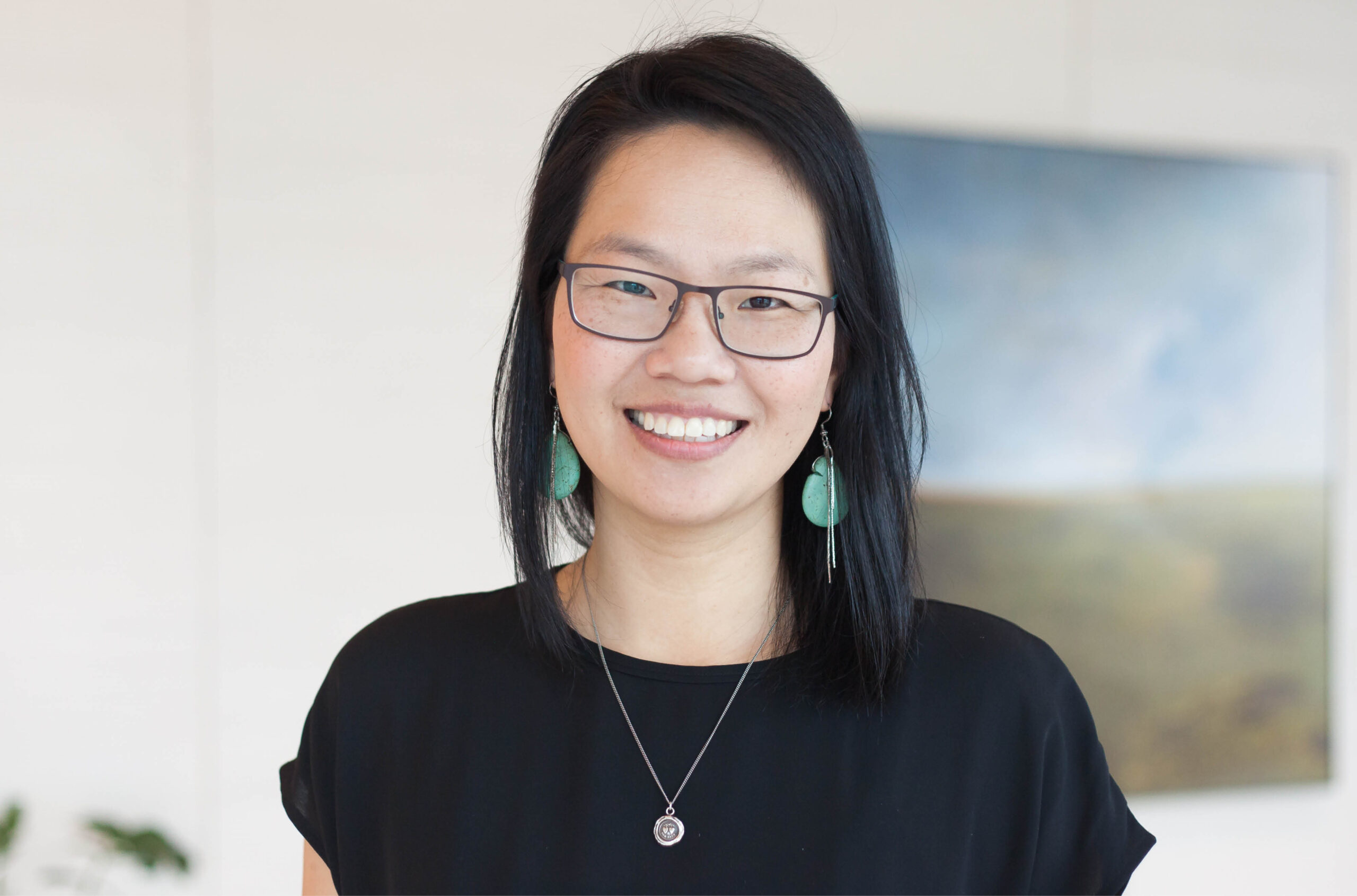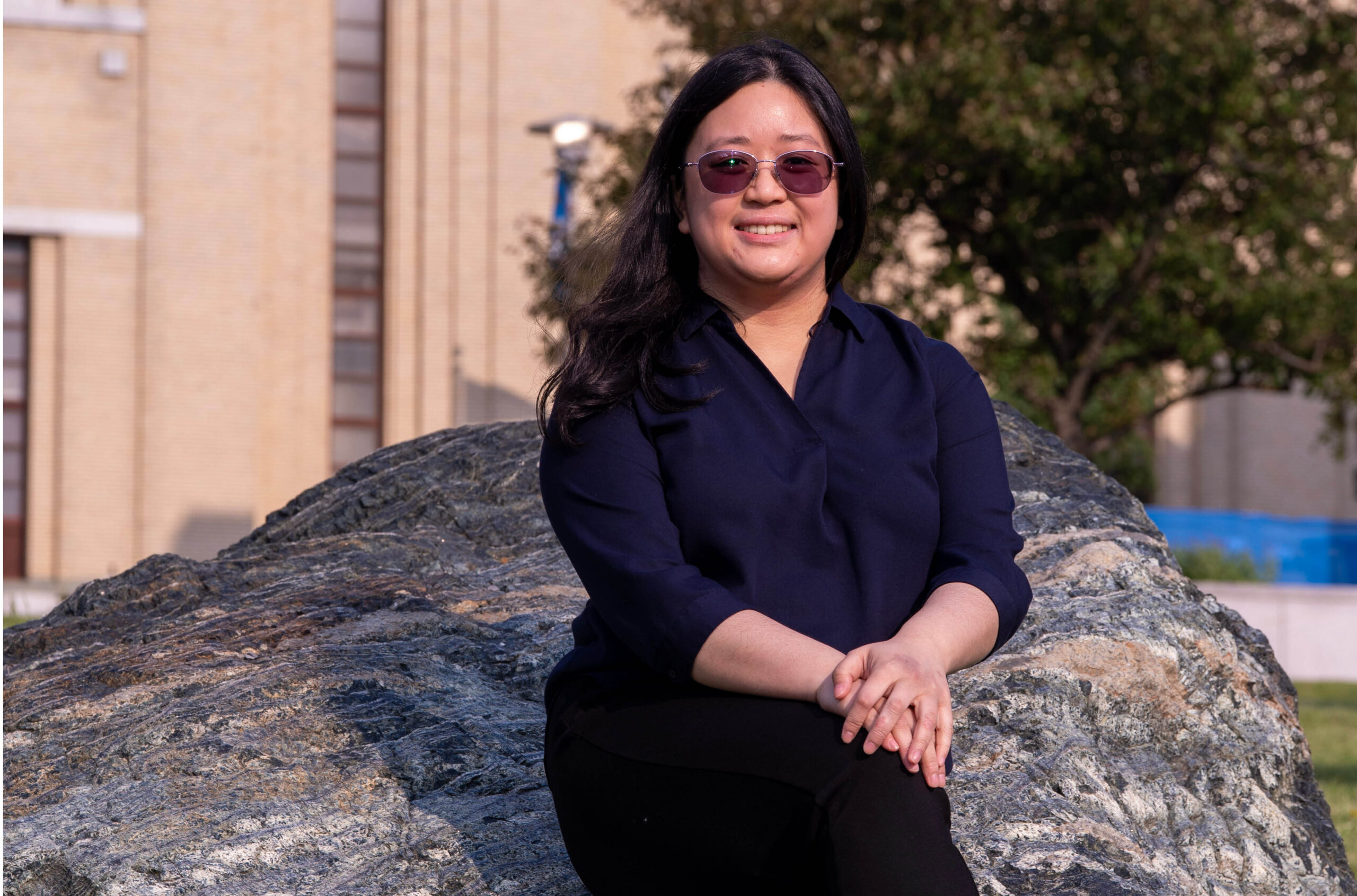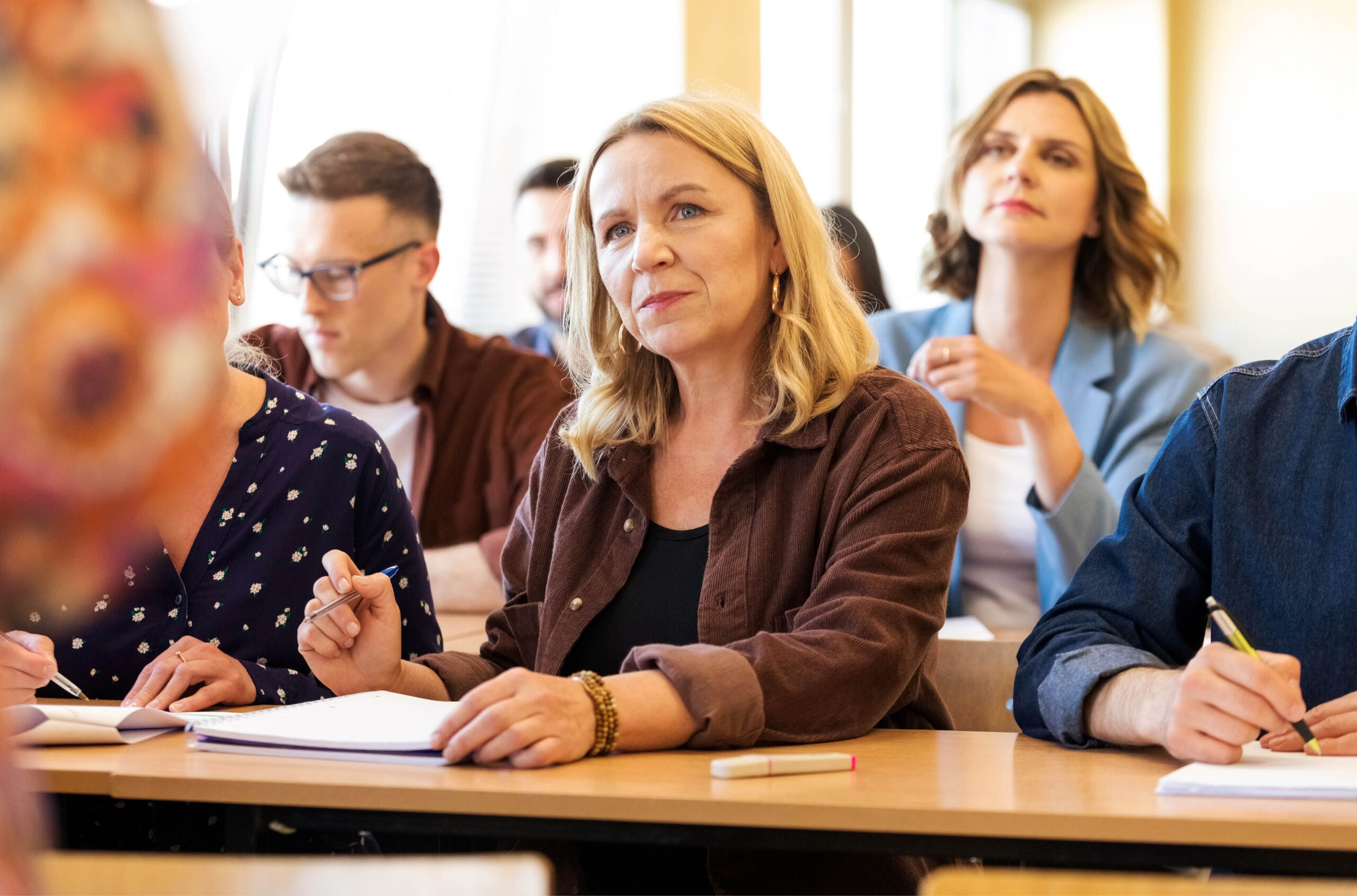From marketer to MFA
How I returned to graduate school as a working professional.

After working full-time for over a decade as a marketing professional, I made the decision to return to graduate school full-time. It was a decision long in the making—several years of considering my motivations, the benefits and drawbacks, the pragmatic challenges, my personal goals and the impact on my family.
Students and recent graduates may hope for a career trajectory that is linear; however, career paths, like life, are rarely straightforward.
The early stages
I’m a transdisciplinary artist trained in both environmental sciences and visual arts. I began my academic journey in the sciences, completing an honours B.Sc. in biogeography and physics at the University of Toronto, followed by an M.Sc. in soil science at the University of Guelph. After finishing my M.Sc., I shifted course and pursued a BFA at Emily Carr University of Art + Design.
After my BFA, I considered applying to do an MFA, but I’d already spent many years in school so I began working full-time to pay off student loans and gain experience in the workforce. I found a role in the sustainable built environment sector as a marketing professional, where I could merge my background in environmental science with visual storytelling. I worked with amazing colleagues and mentors and supported meaningful projects. Outside of this role, I continued my artistic research-creation practice sporadically, when I could find the time and energy.
Over time, I had a persistent feeling that something was missing. I started looking into a career path better aligned with my personal goals.
The timing
Like many others, I re-evaluated my career trajectory during the early stages of the COVID-19 pandemic. I realized I had been on a proverbial hamster wheel — working hard and keeping busy, but not progressing toward my creative and career aspirations.
At that stage in life, with my kids in elementary school, the possibility arose for me to complete a full-time graduate program, doing most of my classes, research, creation and teaching while they were at school. I had wanted to complete an MFA degree for years. I knew I wanted to deepen my artistic practice and make a long-term shift toward a more research-oriented and creative career. An MFA would give me the time, mentorship and credentials to make that shift.
The challenges
The decision wasn’t without difficulties and sacrifices, particularly for my family. Leaving a full-time salary was a major financial consideration. In contrast to some of my co-workers who were returning to grad school in programs, such as MBAs, that have more apparent career benefits, I was leaving to do a graduate degree in arts and culture with less certain career outcomes. Attending my top-choice university meant moving our family from British Columbia to Ontario and asking them to leave behind familiar faces and places they loved, which made me question whether the upheaval was worthwhile.
Another challenge was returning to the classroom after a decade away, which meant adjusting to a new schedule of reading, writing, critiquing and creating on academic timelines. This time around I felt creatively and intellectually engaged (and excited!), but I also often felt exhausted managing schoolwork, family schedules and other personal responsibilities. Although many people were curious and supportive of me being in grad school, I sometimes felt out of place being in a different stage of life than many of my classmates and in a different career stage than most other parents I knew.
The benefits
One of the biggest advantages of returning to school as a working professional is having experience in the workforce. I had developed strong time-management skills, the ability to collaborate with others across disciplines, and a clearer understanding of how to set and meet deadlines. I also brought with me the confidence that comes from navigating both successes and setbacks in the workforce.
That maturity allowed me to set intentions of what I hoped to learn in my graduate experience, as well as the openness to embrace and adapt to new perspectives, new research, new skills and new approaches.
The rewards
Graduate school gave me the opportunity to continue learning, receive mentorship in my field, form professional and personal connections, and develop greater focus in my artistic practice.
One of the factors I had considered before pursuing my MFA was the influence this could have on my kids as they grew older and faced decisions about personal and professional ambitions. Particularly from the perspective of a parent, I wanted them to know that it’s possible to pursue their goals at any stage of life. They’ve seen me studying, working through challenges, and pursuing something I care deeply about. I hope this plants a seed that remains with them throughout their lives — that learning never really stops and that there is meaning in shifting directions, even when the changes are formidable.
Final Thoughts
If you’re a working professional considering a return to grad school, know that it’s possible and worth considering, even if it feels daunting. My path hasn’t been linear, but I’ve come to see the richness of my education and experiences, and I’m grateful for the people I’ve met along the way. The decision to return to grad school won’t look the same for everyone, and your story doesn’t have to follow a straight line either — returning to grad school as a working professional can open space for reflection, change, and growth.
Featured Jobs
- Director of the McGill University Division of Orthopedic Surgery and Director of the Division of Orthopedic Surgery, McGill University Health Centre (MUHC) McGill University
- Canada Impact+ Research ChairInstitut national de la recherche scientifique (INRS)
- Anthropology of Infrastructures - Faculty PositionUniversité Laval
- Soil Physics - Assistant ProfessorUniversity of Saskatchewan
- Engineering - Assistant Professor, Teaching-Focused (Surface and Underground Mining)Queen's University















Post a comment
University Affairs moderates all comments according to the following guidelines. If approved, comments generally appear within one business day. We may republish particularly insightful remarks in our print edition or elsewhere.